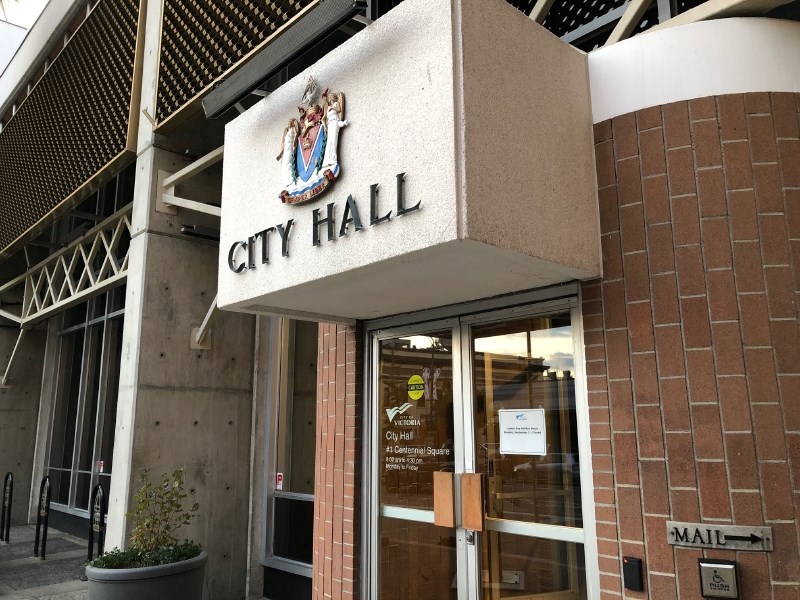Victoria city council has endorsed a scaled-down byelection process to fill the seat vacated by former councillor and new NDP MP Laurel Collins.
City staff recommended the modified approach as a way to save time and money by cutting back on the number of election-day voting stations, eliminating special on-site voting at seniors care homes, and limiting the amount of communications and advertising done to inform people about the byelection.
Staff estimate that the cost at $140,000 to $170,000 as opposed to $320,000 to $360,000 for a standard election.
Mayor Lisa Helps called it a sensible option and noted that elections require significant amounts of staff time.
“If we were to ask them to undertake a full election right now, I think that would just gum up a lot of things that this council wants to get done,” she said. “So I think this provides a balance.”
The modified process reduces the number of voting stations on election day to four from 12, but offers more advance voting opportunities at city hall, with eight stations as opposed to five during a regular election.
Helps pointed out that Saanich took a similar approach with four election-day voting stations for its 2017 byelection in a municipality that covers a larger geographic area.
A Victoria city staff report noted that byelections typically attract fewer voters. The turnout for the Saanich byelection was 17 per cent versus 34 per cent for the general election in 2018.
But Stephen Andrew, who ran for mayor in 2014 and for council in 2018, called the decision to proceed with a scaled-down process “appalling.”
“I think they’re a bunch of hypocrites,” he said. “They spent a lot of money to expand voter engagement, such as opening up polling stations outside of the municipality [in the last election]. They worked heavily to garner a youth vote. And this just flies in the face of that.”
Andrew said it makes no sense to pare back election spending because byelections tend to have lower turnout. “All you’re doing is you’re just making a self-fulfilling prophecy,” he said. “If we don’t engage more people, what we’re going to do is we’re going to see a lower turnout.”
Council did make a couple of changes to the modified approach recommended by staff.
Coun. Ben Isitt suggested, and his colleagues agreed, that the city should investigate the most cost-efficient way of mailing out voter information to every household.
“I think when we’re talking about who’s on the council, and the composition of residents’ local government, I think getting something in hard copy to each household makes sense,” Isitt said.
Council also supported his suggestion that the city continue to compile and post candidate-profile information on its website, something that was done during the general election.
“I think this is a modest resource,” Isitt said. “It’s fair in that it’s transparent. There’s not a lot of embellishments. It’s basically some text. And it does let candidates who may choose not to even have a campaign to at least have a very rudimentary way of communicating their views and contact information to voters.”
The modified approach envisions scrapping voting at 14 care homes, something that was used by 403 people, or less than one per cent of voters in the 2018 election.
Staff assured councillors that the city will contact the care homes to make sure residents are aware of the election and that they know where to vote or obtain a mail-in ballot.
Staff will report back to council in January with final cost estimates and recommendations for the appointment of a chief election officer. Once that’s done, a general voting day must be held on a Saturday within 80 days of the appointment.
City clerk Chris Coates said April 7 is the most likely election date.
Collins triggered the byelection when she resigned from council on Nov. 4 after winning the Victoria riding for the NDP in the Oct. 21 federal election.
Coates made clear previously that council had no other options and was required to call a byelection under the provisions of the Local Government Act. The only time council has discretion on whether to call a byelection is in the final year of its four-year term, he said.



